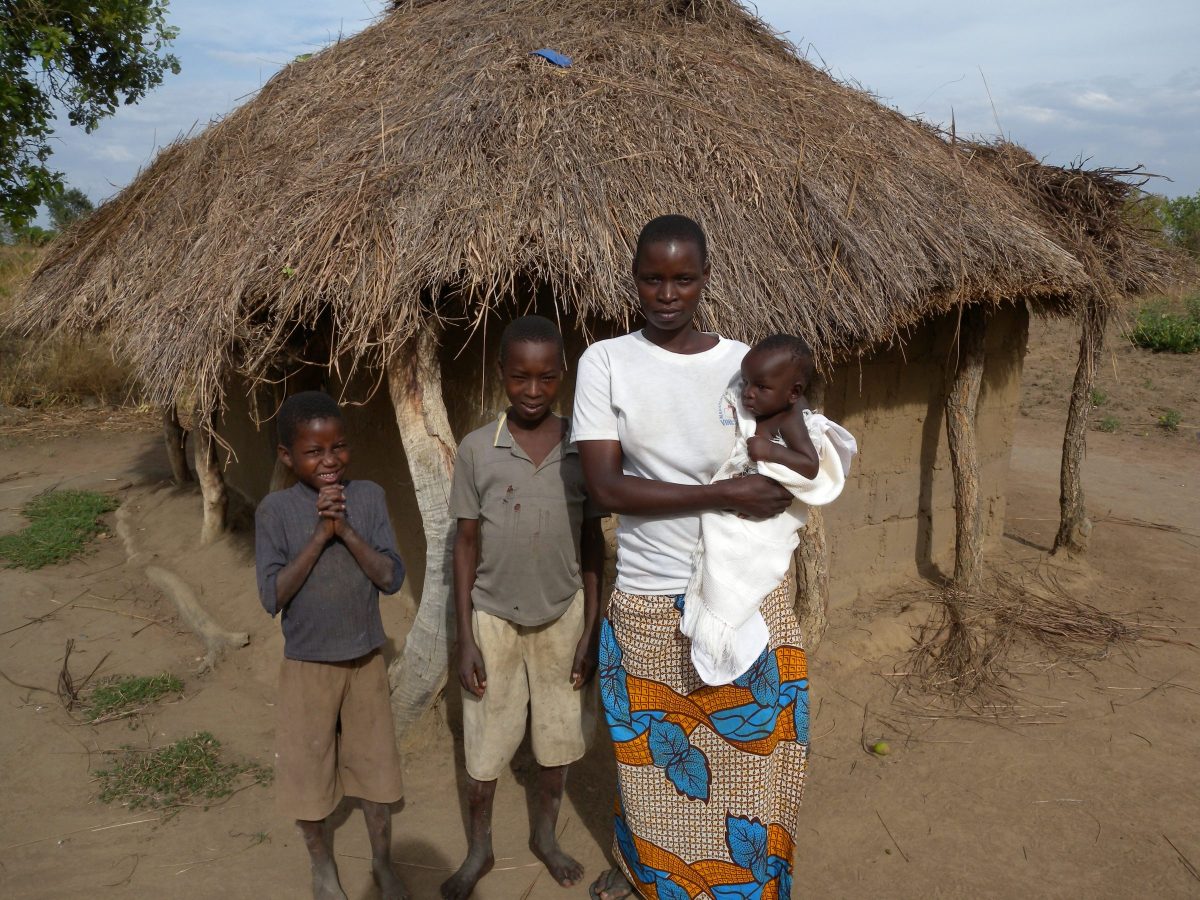Provision of re-settlement kits for returnees in North-Eastern Uganda

June 9, 2012
This project supported 200 returnee families from Morungatuny Camp, Northern Uganda to rebuild their lives and resettle in their ancestral homes. Families received resettlement kits that include kitchen items, tools, seeds, mosquito nets and water sanitizers.
After so many years away, returnees found there was very little left to go back to with homes and crops having being destroyed through the civil war. They did not have the resources to buy basic commodities like seeds, fertilizer and hoes for farming, axes and tools to repair and rebuild their homes and clothing and basic health care for their families.
The kits provided returnees with the means to build new homes, improve community health with water sanitizers and mosquito nets, as well as providing a sustainable source of food and income generation through the seeds. The project also enabled families to send their children to school because of the income earned and the reduction in malaria and the associated medical costs. These kits made a huge difference to people’s lives and gave them confidence to re-settle in their communities again.
Additional information
Uganda endured a civil war that lasted over twenty years, with the Lord’s Resistance Army (LRA) led by Joseph Kony wreaking havoc, massacring civilians, kidnapping children for use as soldiers and torching villages. The war displaced more than 1.2 million people. Since the peace talks were brokered between the rebels of the LRA and the Government of Uganda in July 2006, there has been massive movement of internally displaced people from the camps back to their villages of origin.
Results
M-PROJ provided aid first to the most vulnerable individuals, while also focusing on the long term through helping with resettlement and skill development.
Identified families were helped with access to land resources, houses were constructed or reconstructed, and 200 resettlement kits were distributed to Internally Displaced Persons (IDPs) ready and able to return home. The kits included items such as bed nets and blankets to prevent malaria and child pneumonia, as well as seeds which enabled families to plant crops and become more self-sufficient.
Ensuring the safety of returning IDPs was a priority for the project and this was accomplished through dialogue with both the refugees themselves, the local government and the local population. The host community benefited from the dialogue, but also through the kits which reduced the need for medical needs as well as creating a new market for food, seeds and utensils.
The indirect beneficiaries for this phase of the project was 2,049 people.
Case study
Barbra Ajore, a mother of six from Opau Iyeng village, says: “I dropped out of school while in class 7 at Aloko primary school. When the resettlement kit helped me meet the struggle for food, shelter and health, I was then able to focus on developing a tradeable skill.”
Barbara felt that starting with tailoring skills would suit her best in this part of the country where there are no vocational training institutions. Other beneficiaries of the project (23 women, 2 men and 1 boy) also joined her. They were able to have the use of a room in a community member’s house. They sold some of the harvest they grew from the resettlement kit and bought training materials and 6 sewing machines. Today these machines are helping the community to learn tailoring.